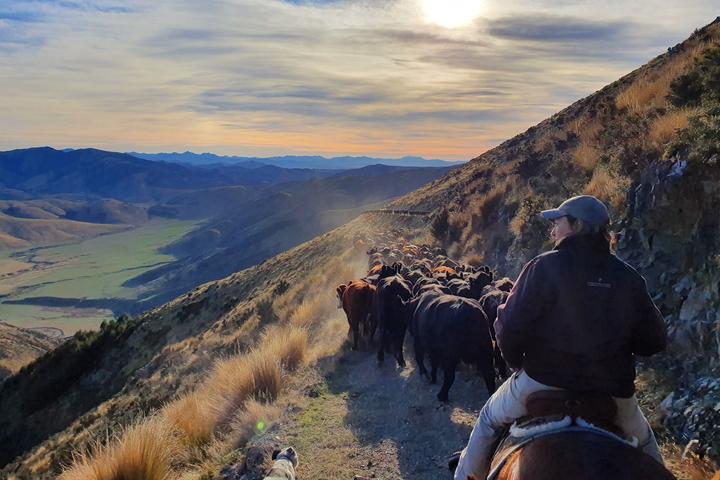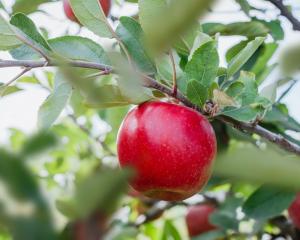
As well as getting up to speed with a holistic grazing system established by the farm's US owners, Michael Whyte is also dealing with extensive damage to infrastructure caused by devastating floods in June.
The down-to earth farmer is relishing the challenge of running Lees Valley Station.
"I'm enjoying the valley life, but it's also the climate. I love the seasonal changes. You get up in the morning and you don't know if it's going to snow or be 30 degrees. It's really quiet and peaceful too," he says.
Michael says he was lucky to inherit a team of knowledgeable and dedicated farm staff.
The initial property was bought in 2013 by Grasslands NZ on behalf of its US-based investment client. Since then more farmland has been purchased.
The station is an amalgamation of several neighbouring runs in the valley. The land ranges from fertile valley flats near the Ashley River to steep tussocky hills and snowy peaks.
"A while back someone slowly purchased more and more stations throughout the valley, so we've got Mount Pember, Snowdale, Kingsdown, Island Hill, and Okuku at the top end. I think it's about 47,000 hectares now," Michael says.
His short term plan is to fix the flood-damaged fences and floodgates and improve the pastures.

In addition to about 1800 cows, the station is currently home to 8500 Perendale and Romney ewes and 200 hinds.
Michael says the stocking rate will increase when conditions improve.

The Ashley River - Rakahuri which flows through the valley is normally in places around six metres wide. After the torrential rain it was up to 400m wide. The river rose to destroy flood gates and fences.
Michael had barely started when he found himself dealing with the flood damage.
He aims to improve the pasture growth once he has dealt with the flood damage.
"Every manager has their own way of improving pastures," he says.
For him, it would create a cycle of growth; better pastures will lead to higher stocking, better returns and a happier staff.
Jenny McMurdo is a shepherd, farm hand and health and safety officer on the station. She also took many of the extraordinary images in this story as well as the video of mustering the sheep. She also runs the New Zealand Working Dogs Instagram page.
Jenny was born and raised in Auckland, then moved south in Year 10, loved agricultural studies at school, then turned to vet nursing and farming after meeting Station stock manager George Adams.

"It can be stunning on a beautiful day," says George.
"But when it is windy up there, you can nearly be blown off your horse. But you can definitely see a bit."

"It is pretty extraordinary, the scope of the place."
Rosie Dobbie is a junior shepherd on the station. She got a job after finishing a degree and heard that the Station was looking for workers.
Every day, she says, she tries to learn something and write it down in her diary.
"It can range from things like 'don’t turn off the ute in neutral on a hill'. I have learned a lot of tractor skills. But every day - even the worst days when it is cold and been raining - I still try to figure out something I have learned."

She says she was scared to articulate that she wanted to go farming. But when she got over the fear, she found people were very ready to help by offering her advice or contacts for jobs.
Station manager Michael Whyte's partner is a barrister whose practice is based in Tauranga, hundreds of kilometres north.
But Genevieve Haszard says she can split her work between seeing clients in Tauranga and then working remotely on their legal briefs.
She is also a council member of both the New Zealand Law Society and the NZ Bar Association.
She says that the remote working is good for her and clients.
"It renews your energy and gives you more creative thinking."


















